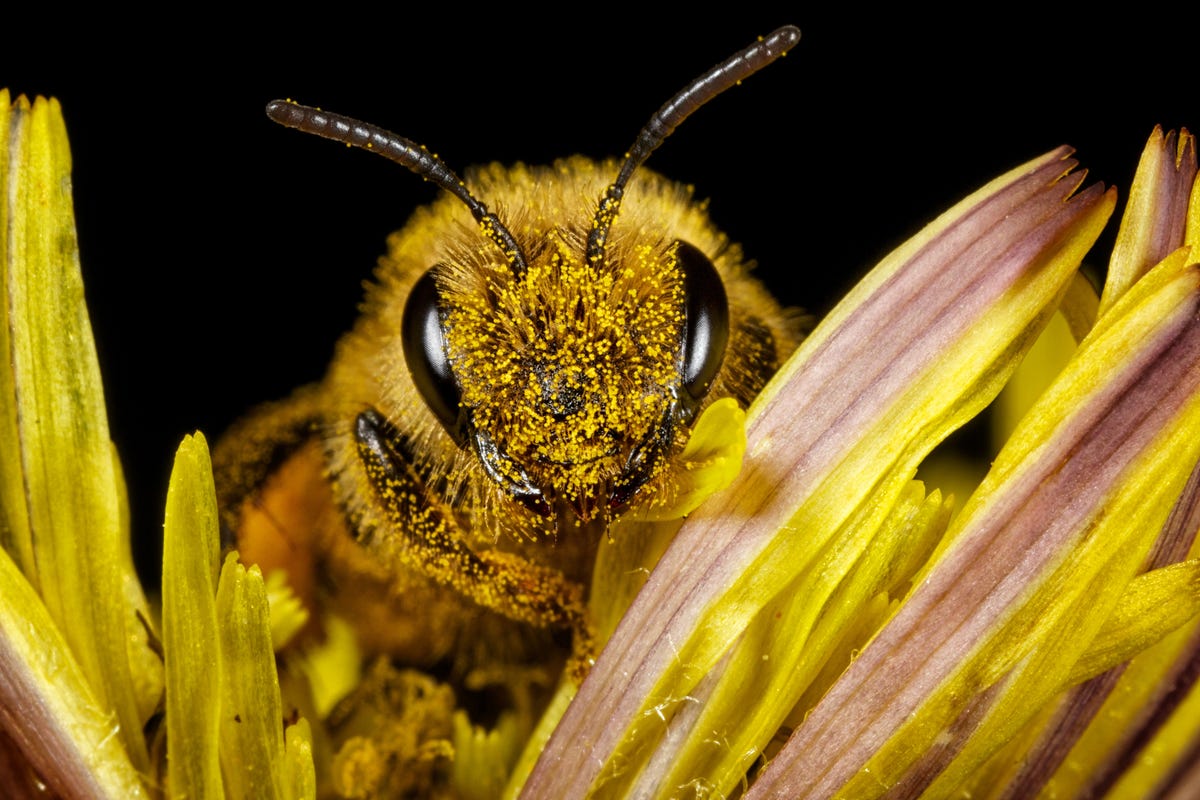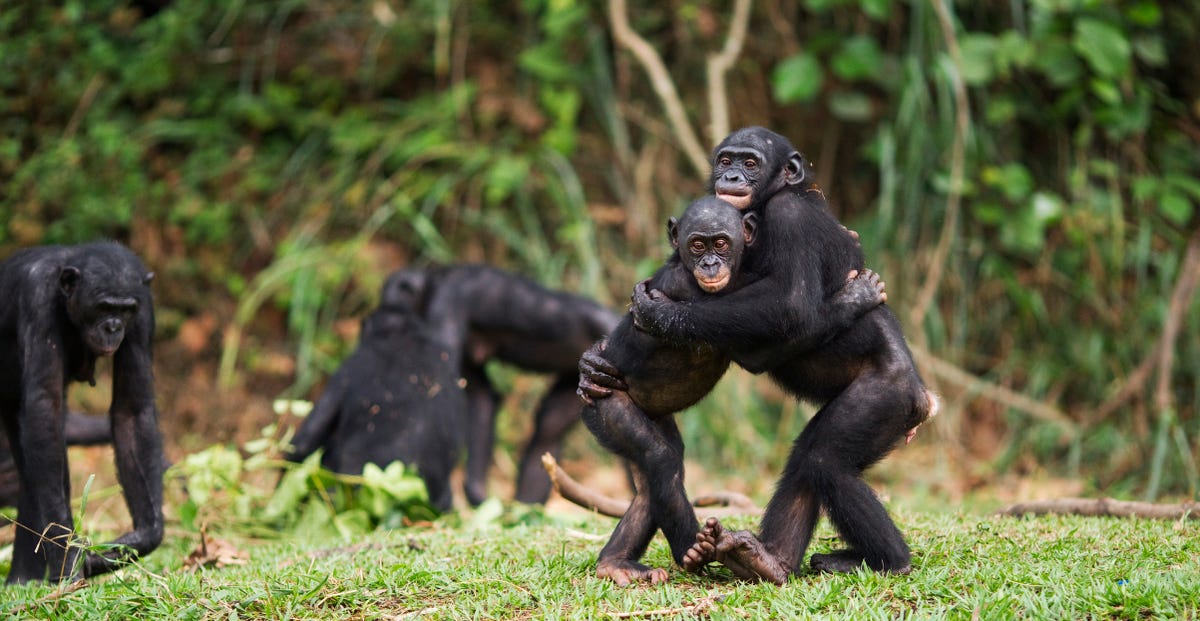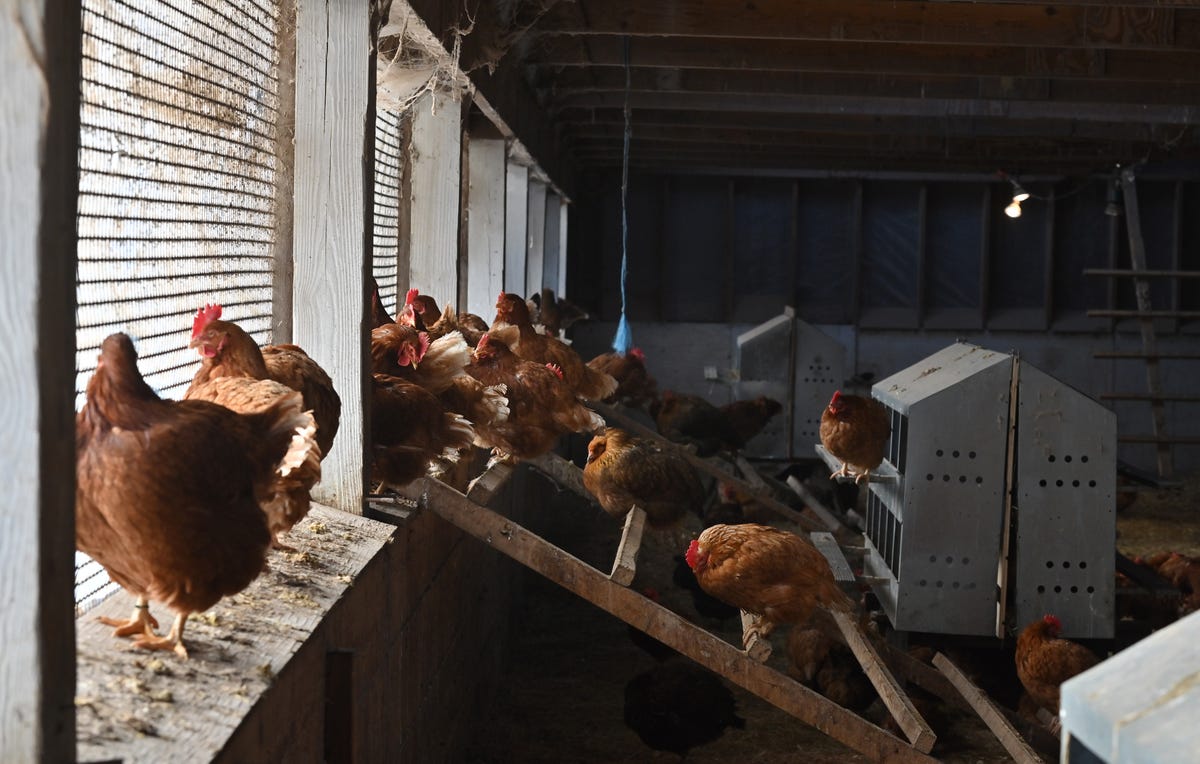
Bees Get Anxious and Octopuses Feel Pain. Why Do We Look Away?
There was a time when doctors performed surgery on infants without anesthesia. And I don't mean centuries ago. This happened in the 1980s, and it wasn't rare. Somehow, despite babies crying or screaming, the medical community had convinced itself they couldn't feel pain.
A lot of the reasoning had to do with the belief that infant brain pathways were too immature to register the sensation. And a massive contributor to the horrifying misunderstanding was that the tiny patients couldn't verbalize their emotions. They couldn't say: "I'm in a lot of pain. Please help."
Then in 1987, the American Academy of Pediatrics finally deemed the practice we'd now consider barbaric to be unethical. Study after study showed that infants do feel pain like us. And I know I'm not alone in my shock that this practice wasn't remedied sooner.
But what if humanity is unknowingly falling into a similar trap all over again? What about the emotions of animals?
Like infants, animals can't say: "I'm in a lot of pain. Please help." And many can't even cry, yet there's a growing abundance of research to suggest that animals across the spectrum -- from octopuses to fish to bees -- experience emotional and physical pain, and sometimes even anxiety.
In 2011, for instance, researchers conducted a study on honeybees that involved agitating them by shaking them around. After analyzing the bees, the team saw they exhibited brain chemistry changes, like lowered serotonin, that are directly associated with anxiety, depression and other negative psychological states.

More and more research suggests animals experience emotional and physical pain.
Claudio Cavalensi/Getty Images"For animals, we've gone through the same sort of stages, in the sense that, since animals don't talk, their feelings were denied," Frans B. M. de Waal tells me. He's a biologist, primatologist and professor emeritus at Emory University, who's also the author of best-selling books like Are We Smart Enough to Know How Smart Animals Are? "It's very strange that people have denied pain in fish for so long, and that's because fish don't call out when they are in pain."
In a new review, published Thursday in the journal Science, de Waal lays out what we know so far about animal emotions -- and what this knowledge might ask us to change in our moral framework as the humans who live among them, test them for science and even eat them.
"Although we are used to thinking about how our actions affect other humans, recognizing widespread animal sentience requires us to also notice -- and consider -- our impact on other species," de Waal and fellow author Kristin Andrews, a professor of philosophy at York University and York Research Chair in Animal Minds, write in their paper. "This way, animal sentience is bound to complicate an already complex moral world."
On the bright side of things, the treatment of animals has steadily been improving over the years, especially of mammals that can cry out in pain or somehow indicate they feel negative sensations, the review notes.
Dogs, dolphins and cows can yell when they're being hurt, making it much easier for us to empathize with them. And researchers have very strict rules in place for scientific studies that employ animal subjects. When I worked in a laboratory testing mice, I attended a week of specialized training to learn just how to ethically handle and euthanize them. We had a protocol, and if I didn't follow it, there'd be consequences.
But when it comes to species that appear insensitive to painful sensations, like fish, or those that might require complex mechanisms for more-than-baseline comfort, like farm animals, we might have work to do.

Bonobo juveniles hugging each other at the Lola Ya Bonobo sanctuary in the Democratic Republic of Congo in 2010.
Anup Shah/Getty Images"We can do a lot better," de Waal says. "I've worked all my life with primates in captivity, and it's a rule that primates need to be kept socially ... they have to be kept in a small group. And I think for primates, that's a good rule. But I also know that, in practice, many labs still keep monkeys in single cages."
De Waal also calls out the total lack of laws surrounding ethical treatment for invertebrates.
"We have all sorts of rules for rats and mice -- how you need to treat them, and how you need to kill them, and so on," de Waal says. But despite indications that invertebrates experience sensation too, "we don't have that for them."
Lobsters are invertebrates, and chefs boil these animals alive. This situation might be different if lobsters could look us in the eye and say something like, "I'm in pain."
"In the history of research on emotions, feelings have usually been denied to anyone who cannot speak," de Waal says. "And that's a very strange position because, of course, feelings don't require language. It's not as if you cannot feel if you don't know the language."
Even though we may not know exactly what animal emotions are -- because they can't communicate them through language -- the review says we can identify when they experience negative emotions or positive emotions.

Chickens are typically kept on farms in coops like these, without much sunlight or fresh air. The coops are usually packed.
Getty ImagesSome researchers have suggested that organisms that are simpler than humans could have less-developed emotions, and other researchers, de Waal explains, believe the opposite. Perhaps simpler brain chemistry, and thus the inability to contextualize emotions, makes their sensations worse or unceasing. It might be best to use a blanket rule when considering how to ethically treat animals, rather than discriminate by which animal feels the "most" emotion.
We just don't know yet. Though what we do know is that those emotions exist.
Knowing that animals feel emotions gives rise to a glaring question: Is it unethical to eat them? One extreme might be to say we shouldn't do anything to harm animals at all, ever. No eating, testing or anything else. The other might be to say that what you do to animals doesn't matter.
"I think we need to end up somewhere in between," de Waal says. "You need to take the sentience of animals into account. You cannot just act as if they are rocks -- that's a bit of what we're doing at the moment, in the agricultural industry."
Every day, crowds of chickens, cows, pigs and sheep are tended to on farms "in cooped-up spaces," de Waal says, "without sunlight and without air." De Waal says that when considering a shift in our moral actions, we need to focus on these farm animals, and not just on animals in research labs, with strict regulations, or zoos, with trained professionals. Farm animals, de Waal says, would probably consider a zoo to be a "paradise."
In the end, thinking about how to navigate animal emotions might bring up more moral questions than are answered. Regardless, de Waal says, something needs to change, especially with regard to farm animals. And it's our responsibility to figure it out.
"We're basically treating them as if you can do anything you want," de Waal says. "I don't think that's the right attitude."
Correction, March 26: The original version of this story misstated Kristin Andrews' background. She's a professor of philosophy at York University and York Research Chair in Animal Minds.
Source
Tags:
- Bees Get Anxious And Octopuses Feel Pain Why Do We Look Away Trailer
- Bees Get Anxious And Octopuses Feel Pain Why Do We Look Worse In Photos
- Bees Get Anxious And Octopuses Feel Pain Synonym
- Bees Get Anxious And Octopuses Feel Pain Dur ing Early Pregnancy
- Bees Get Anxious And Octopuses Feel Pain Under My Armpit
- Bees Get Anxious And Octopuses Feeling
- Bees Get Anxious And Depressed
- What Do Bees Get From Flowers
- How Big Can Bees Get
- Can Bees Get Through Bird Netting
Blog Archive
-
▼
2022
(227)
-
▼
December
(88)
- MacOS Ventura: The Coolest Upgrades And New Featur...
- 2023 BMW M2 Prototype First Drive Review: Who Need...
- 5 Grounding Techniques To Manage Anxiety
- All The Free PS4 And PS5 Games PlayStation Plus Su...
- Star Wars Costume Designer John Mollo Dies At 86
- NHTSA Investigating 1.7M Ford, Lincoln Cars Over P...
- Facebook Vs. Apple: Here's What You Need To Know A...
- Bees Get Anxious And Octopuses Feel Pain. Why Do W...
- JCPenney Just Halved The Price On This Jacket For ...
- Scientists Might've Solved The Mystery Of Jupiter'...
- Get $25 Off The New Google Pixel Buds Pro At Amazon
- 5 Unexpected Places To Put Your Apple AirTags
- Netflix's Biggest Hit Movies And Shows, Ranked (Ac...
- WhatsApp Status: Everything You Need To Know About...
- Stylish DIY Pokedex Cover Helps With Pokemon Go Ba...
- Match Launches Stir, A Dating App For Single Parents
- Fauci To Retire As Chief Medical Adviser To Presid...
- Pixel And Moto Phones Are Discounted By Up To 69% ...
- Disney Plus Grows To 137.7M Members After Netflix'...
- Will Diablo II: Resurrected Run On Your Laptop?
- Adobe Lightroom Gets Cinema-style Color Editing To...
- Live-action Blade Runner 2099 Series In The Works ...
- Get 3 Months Of A Tidal HiFi Plus For Less Than Th...
- $10,000 Or $50,000 Student Loan Forgiveness: Could...
- 2023 Nissan Rogue Gets Midnight Edition, Small Pri...
- WhatsApp In Trouble With France Due To Facebook Da...
- Hyundai Confirms Ioniq 5 N Coming In 2023
- Xbox Series X: How Microsoft Learned From Its Mist...
- Win A Shot At An RTX 3080 Ti In Nvidia's System La...
- DJI's New Pro Cinema Camera Looks Funky But Sounds...
- The Absolute Best Anime Shows On Netflix
- Asus ZenFone 3 Review: Too Good For Wallet-watcher...
- Samsung Galaxy S II (U.S. Cellular) Review: Samsun...
- Best Outdoor Grill Deals: Save On Charcoal, Kamado...
- 2022 Zero FXE Review: Here For A Good Time, Not A ...
- Incase's ARC Bag Collection Will Handle Your Tech-...
- Motorola's Back-to-School Sale Knocks Up To $600 O...
- Nvidia Sees A Metaverse Populated With Lifelike Ch...
- Apple TV Plus To Stream 2 Major League Baseball Ga...
- Playing PC Games On Mac Should Get Better With Par...
- Never Forget Your Reading Glasses Again With 30% O...
- How Healthy Is Your Heart? Find Out At Home Withou...
- Withings ScanWatch Horizon Review: Luxury Looks An...
- Selfie Obsessives Will Rejoice At This Dual Front-...
- Celebrate National Waffle Day With Your Very Own W...
- 2023 Kia Sportage Hybrid Pricing Undercuts CR-V, R...
- Mi 11 Ultra Hands-on: Xiaomi Has Truly Outdone Its...
- Amazon Glow Review: A Better Way For Kids To Video...
- Financial Therapy Could Help You Navigate Inflatio...
- This Snapchat Filter Can Help You Learn American S...
- Make Way For Matter, The Smart Home's Would-be Ske...
- WWE 2K21 Game Has Been Canceled, Says WWE
- Pokemon Go Zamazenta Raid Guide: Best Counters, We...
- Best Ways To Use Your Home Equity For Remodeling P...
- PlayStation Plus: Everything You Need To Know As S...
- Vivo V11 Is The Latest Midrange Phone With An In-s...
- Google's 'Premium' Pixel Tablet Is On The Way For ...
- Acer Aspire E1-472G-6844 Review: Better Graphics, ...
- Google's Cheaper Pixel 6A Is Coming Soon, And It L...
- Oppo's R9 Looks Just Like The IPhone 6S (pictures)
- Can Facebook Be Broken Up? What You Need To Know
- Best TV For PS5 And Xbox Series X, Series S For 20...
- ROG Swift 360Hz: Asus Teamed Up With Nvidia To Dev...
- Acer Aspire Vero Eco-friendly Laptop Getting A Spe...
- Facebook Is Testing A Way To Add Multiple Profiles...
- Best Gas Credit Cards For September 2022: Earn Rew...
- Tamagotchi Smartwatch Will Let You Live Your '90s ...
- Bored Kids? Get Them This Indoor Beginner Drone Fo...
- Former Ambassador Sues Apple And Alphabet To Drop ...
- Apple's IOS 15.2 Update: How To Download, New Feat...
- FDA Clears ScanWatch, A Hybrid Smartwatch That Mon...
- Back-to-school Deal: Get An M1 MacBook Air For $80...
- How To Clean Your AirPods The Right Way
- Take To The Skies With $50 Off This Great Beginner...
- Leaked Pics Of Huawei's Updated Freebuds Show Wire...
- Biden Lauds Teslas And Other Electric Vehicles Bei...
- Acer Aspire S 13 Review: An Affordable, Fingerprin...
- 9 Great Reads From CNET This Week: Mojo Lens, T-Mo...
- Snapchat Just Made It Super-easy To Design A Custo...
- LG Display Bolts Curved OLED TVs To Motorized Thro...
- The Best Sci-Fi TV Shows On HBO Max
- Lamborghini's New Urus Performante Ups The SUV Ant...
- People Of The Same Weight Can Look Different Based...
- Galaxy Z Flip 4: The Last-Minute Rumors You Won't ...
- Ronda Rousey, Becky Lynch And Charlotte: Why The W...
- Nvidia GeForce Now Update Brings 1440p At 120fps T...
- Acer Aspire 5735-4624 Review: Acer Aspire 5735-4624
- Mark Zuckerberg Says NFTs Are Coming To Instagram
-
▼
December
(88)
Total Pageviews
Search This Blog
Popular Posts
-
Contoh soalan fizik spm 2019, contoh soalan fizik spm 2018, contoh soalan fizik spm 2017, contoh soalan fizik kertas 3, contoh soalan fizik ...
-
Ukuran tv, ukuran tv 32 inch, ukuran tv 40 inch, ukuran tv 42 inch, ukuran tv 60 inch, ukuran tv 42, ukuran tv lcd, ukuran tv led, ukuran tv...
-
Ukuran sepatu, ukuran sepatu us, ukuran sepatu anak, ukuran sepatu eu, ukuran sepatu eur, ukuran sepatu nike, ukuran sepatu adidas, ukuran s...
